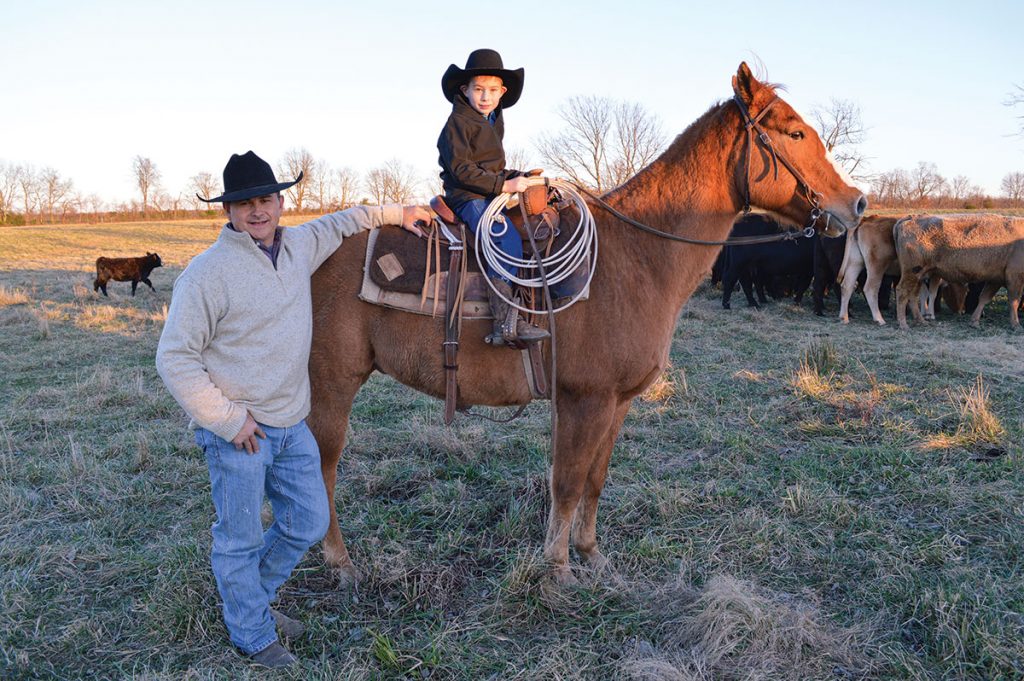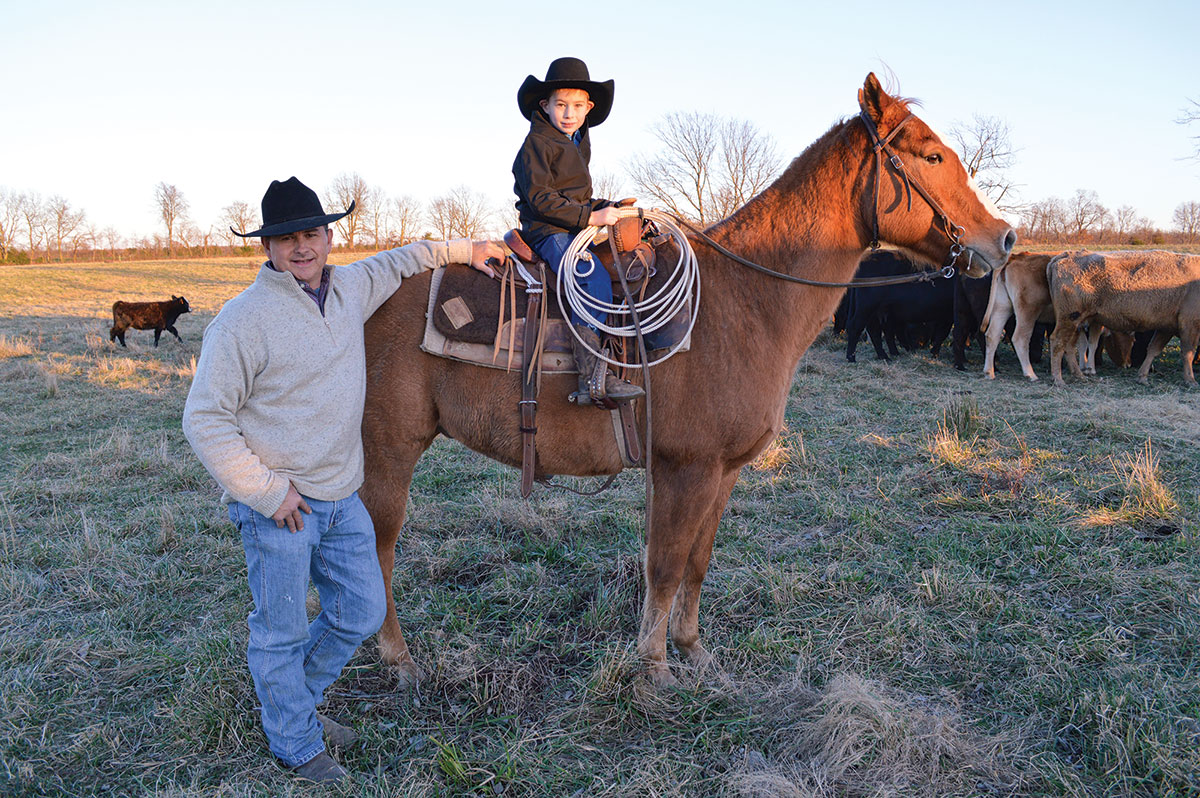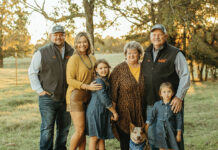
Glenn Baxley utilizes business savvy in farm management
After 18 years in hospital administration, Glenn Baxley permanently traded in his suit and tie for cowboy boots and a hat.
“I really wanted to do something I loved and that I was passionate about. And I wanted to be on horseback every day,” Glenn explained.
Glenn’s years of working on his family’s ranch in Florida combined with his business acumen led him to develop a multifaceted farming operation. “One thing in the cattle business is you have to be able to diversify because no one thing is going to make you a living,” Glenn said. Glenn, his wife, Tyler, and 7-year-old son, Creek, live in Fair Grove, Mo.
The business model Glenn developed requires him to manage several different aspects of the farming operation at one time. He provides custom grazing for beef cattle, manages cattle herds for clients, operates his own cow/calf business and assists farmers with a variety of tasks.
In all, Glenn manages 600 head of commercial cattle and more than 800 acres of pasture. His cattle operations are located throughout Greene County, Mo. Glenn, with his horses in tow, will travel about an hour in any direction from his home to help farmers with day work like gathering and working cattle.
A large and unique part of Glenn’s operation is his custom grazing business. Producers send Glenn their cattle and he cares for them as if they were a part of his own herd.
“I work them, I feed them, I wean calves off of them – just as if they were mine. The difference is, I get paid a per day rate for doing that by the producer,” Glenn explained. The producer retains full interest in the cows and calves.
Another aspect of Glenn’s operation involves managing herds for producers on their property. Just like he does for his custom grazing clients, Glenn oversees every aspect of the cattle herd. But in this case, producers pay him a contracted price for the herd management and care. “So regardless of calf prices I make the same amount,” Glenn said.
When Glenn and Creek work cattle, they are always on horseback. Many times, they utilize Catahoula and Hangin’ Tree working dogs as well.
“Using dogs to handle cattle in conjunction with horses is proven by Kansas State University to keep stress levels in cattle lower and reduce shrink when they are sent to the packer,” Glenn stated.
The Baxleys focus on land management throughout the year. During the growing season, they move cattle off a pasture when the cattle have eaten the grass down to 6 inches. Glenn plants winter cover crops like wheat, turnips and oats to supplement and diversify his animals’ diet in the cold months.
In addition, Glenn rotates the cattle in order to build up pasture for the winter.
“I do my best to stockpile grass. A lot of times I put about half the cattle on a piece of property that it really could hold if I were haying it. I like for my cows to eat grass all winter unless there is snow cover when you have to feed,” Glenn said.
When needed, Glenn feeds hay. However, he stretches his hay and adds protein by feeding bags of cubes along with the hay. “Instead of feeding five bales of hay, I might feed three bales of hay and two bags of cubes that are a tenth of the cost of a bale of hay,” Glenn explained.
The Baxleys used to grow, cut and put up hay for themselves and other farmers. But Glenn discovered the process cost him more than buying hay and feeding it as needed.
“I like for the cattle to harvest the grass. Ultimately, all ranchers are grass farmers. So, if the cattle can harvest it, that keeps me from having to harvest it,” Glenn explained.
Through the years Glenn has experimented with different breeds of herd bulls. Currently he utilizes a South Poll bull. He appreciates the South Poll bull’s calving ease, growth rates and ability to produce baldie calves.
After weaning, Glenn preconditions all the calves he owns or manages.
“However you are going to sell your calves, they will do better if they are pre-conditioned,” Glenn stated. It may be something as simple as acclimating calves to eating out of a bunk. Or feeding them for 30 to 60 days to bring them to a desired weight.
“Every year the market has certain weights that are really hot at the time. Sometimes they want lighter calves, sometimes they want heavier calves,” Glenn said.
Good animal care also is a top priority for the Baxleys. “The biggest thing I tell all my clients is, ‘Your cattle need to be worked. Your bull calves need to be castrated. Calves with horns need to be dehorned. All your calves need to be vaccinated.’ They do so much better at market,” Glenn explained.
It’s been 15 years since Glenn stepped out of healthcare and into farming full-time. And each day when he saddles up his horse, he’s grateful to be doing what he loves from sunrise to sunset.








I know Glenn, he is a quality guy and does a great job for his clients.